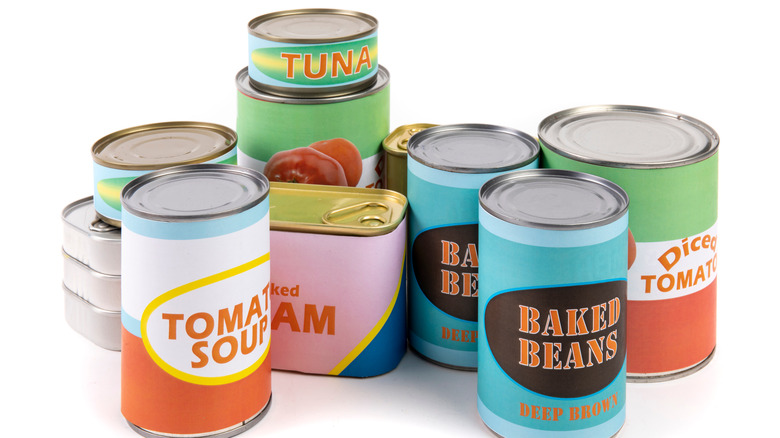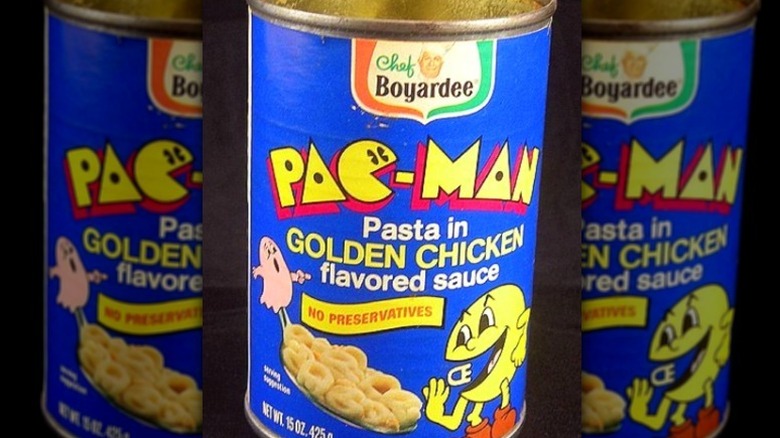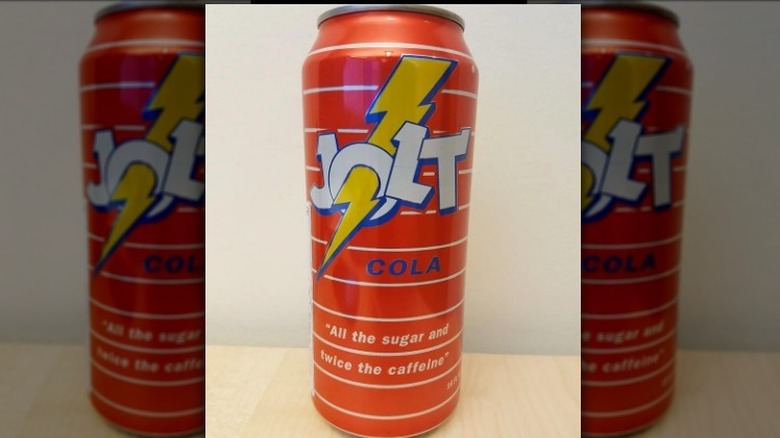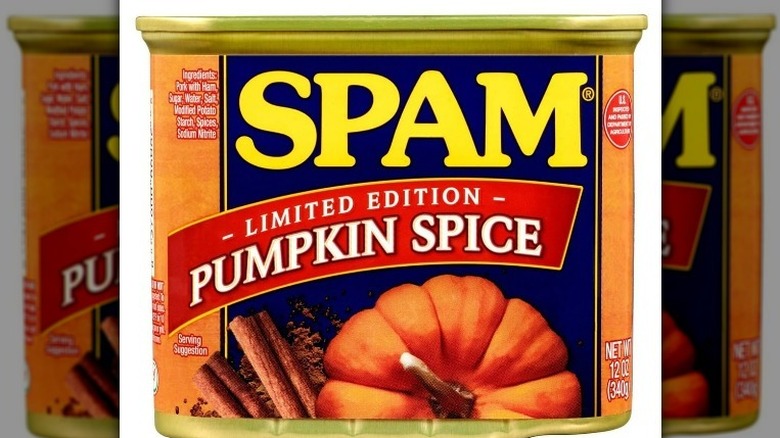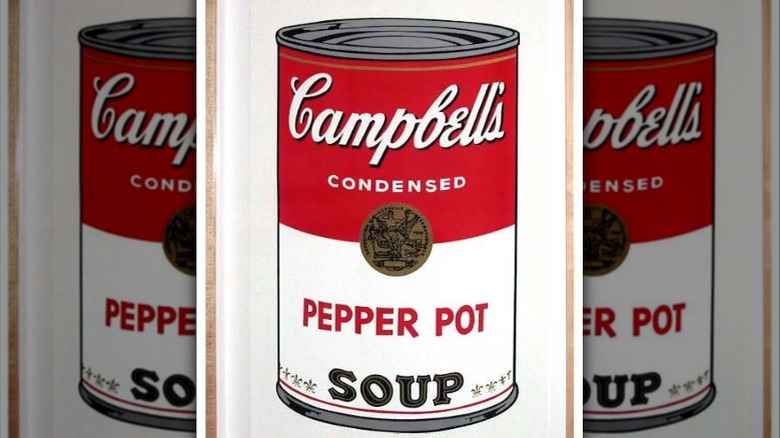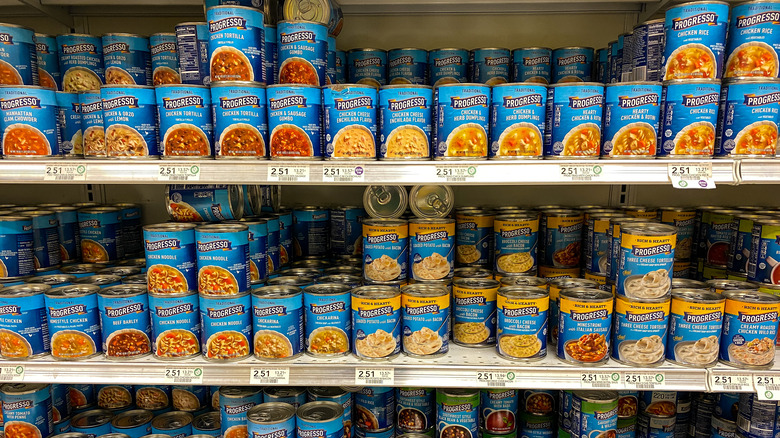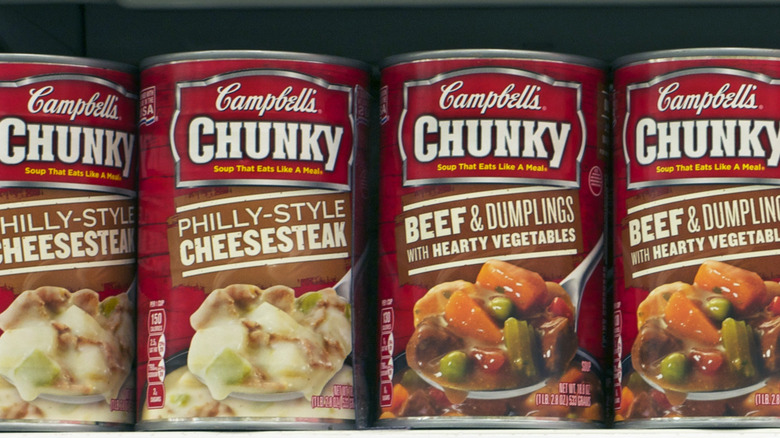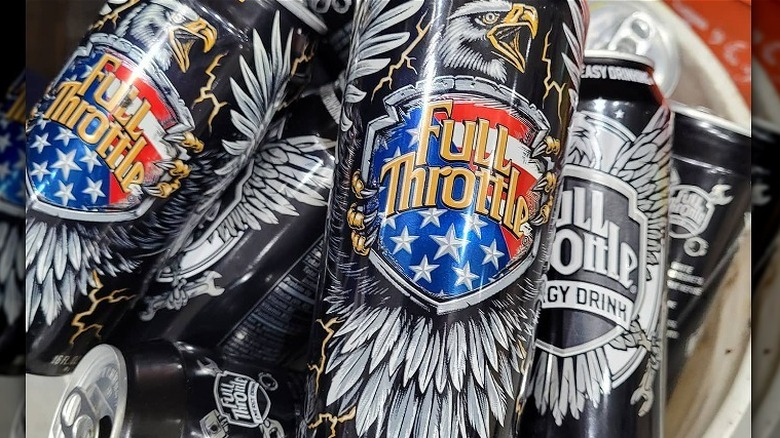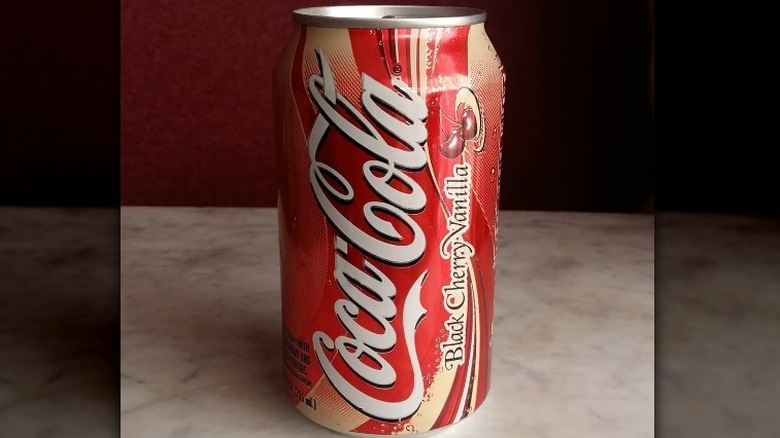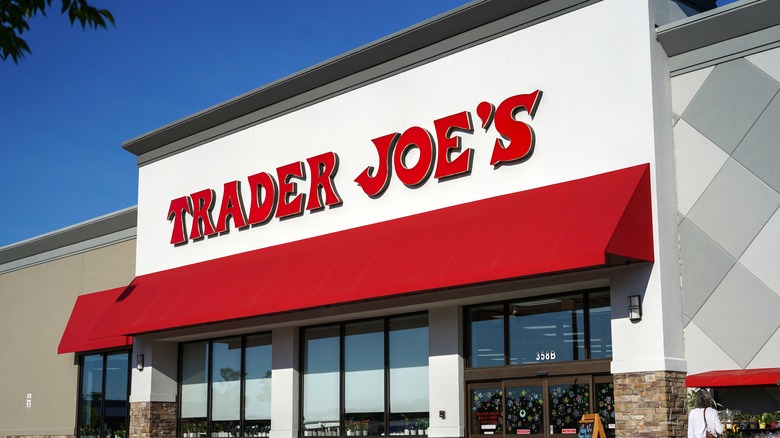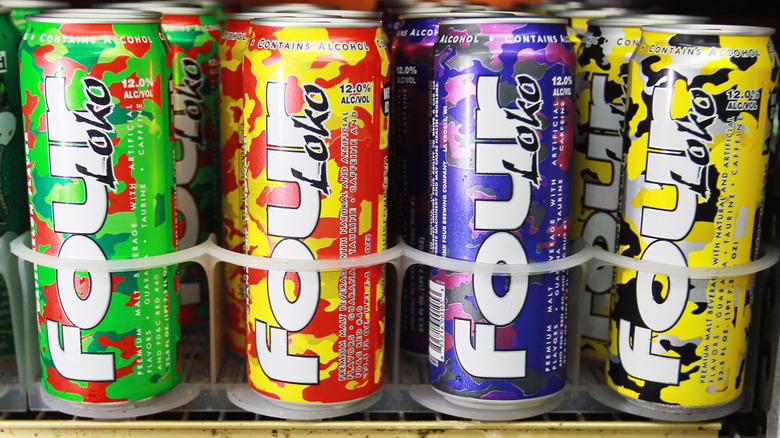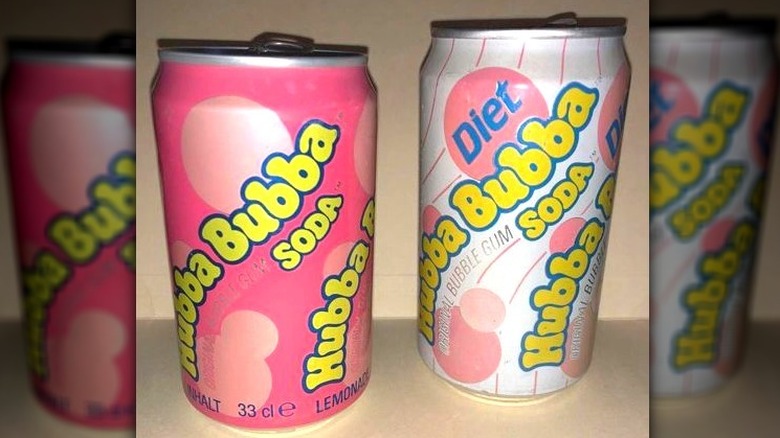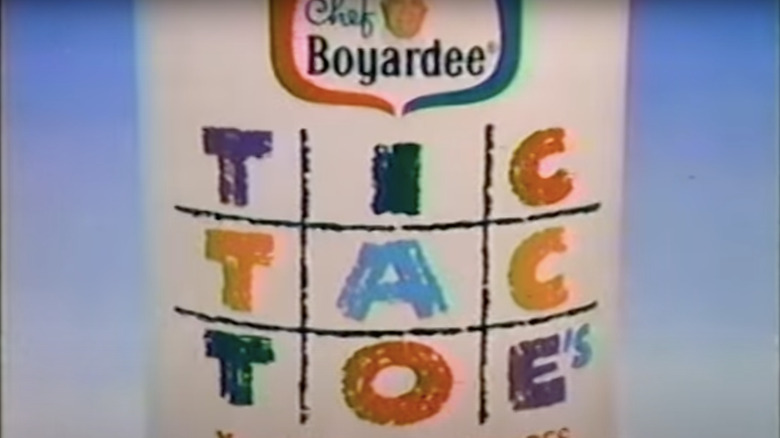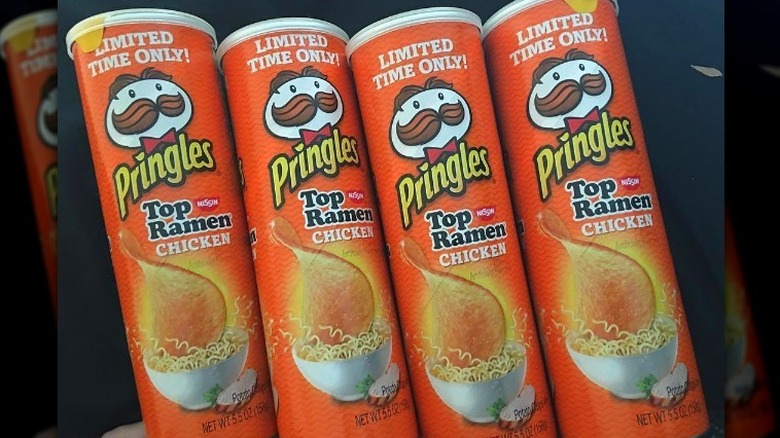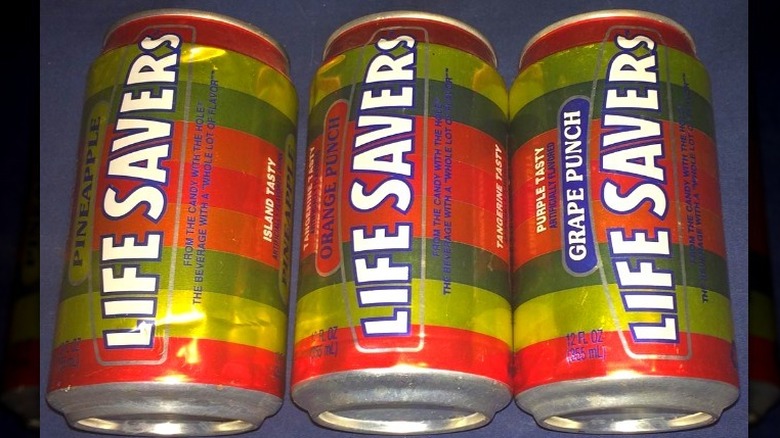Discontinued Canned Foods You'll Never Eat Again
Nostalgia is a heck of a thing, especially when it comes to the snacks and foodstuffs of yesteryear. While we may have fond memories of our favorite flavors of canned soups, sodas, and other pre-packaged and sealed meals, time and the bottom line wait for no canned goods. Whether it's caused by low sales figures, issues with the FDA, or simply the ever-changing trends that pass from year to year, many classic canned foods have been discontinued and are forever off the grocery shelf.
We've been eating canned foods in America since 1825, though the concept wasn't commercially successful until 1856 (via Food Ingredient Facts). That means we've been enjoying canned food since before Abraham Lincoln was president, and a lot of canned products have come and gone in that time. Some of these might be terribly missed today, but other canned foods have been forgotten. There are also a select few that make you wonder out loud, "Wait — they used to put that in cans?" We rounded up a list of canned foods you'll never be able to get your hands on again. If you have something on this list stashed in your pantry, good news: You are now in possession of a historical artifact.
Pac-Man Pasta
Before Mario, or Master Chief, or those guys from Among Us, the early 1980s belonged to a yellow circle that ate ghosts and went "wakka-wakka." Arcades across the country were deep in the throes of "Pac-Man Fever." And like any popular cartoon mascot in the '80s, he was franchised like crazy, from Hanna-Barbera cartoons to canned pasta. Chef Boyardee's Pac-Man Pasta was made up of noodles vaguely shaped like Pac-Man, his perpetual ghost antagonists (though it doesn't state who's Blinky, Pinky, Inky, or Clyde), and "power pellets," which had to be the easiest thing for the Chef Boyardee factories to make.
Pac-Man Pasta came in three flavors: tomato sauce with cheese, sauce with mini-meatballs, and a golden chicken sauce. You can see a picture of the contents of the golden chicken can on Mummy Shark; let's just say it doesn't look great. Chef Boyardee clearly went all in on the marketing for Pac-Man Pasta, even making an animated commercial for the product that featured Pac-Man chomping on whole cans of pasta.
Jolt Cola
At the height of the 1980s, the U.S. was introduced to its first commercially sold energy drink. While we have Red Bull and Monster today, Jolt Cola is considered America's original energy drink (via Better Marketing). Claiming to have double the caffeine of an ordinary soda, Jolt Cola was marketed toward younger consumers, acting as the fuel for parties, night owls, and for pulling all-nighters at school or work. Considering that this was during that time when Diet Coke and Caffeine-Free Coke hit the market, Jolt went against the prevailing trends in the beverage industry. It did this proudly, printing its slogan, "All the sugar and twice the caffeine," on the front of every can.
However, despite its reputation as caffeinated jet fuel, Jolt was limited to a mere 72 milligrams of caffeine per can because of FDA soda regulations. In truth, an ordinary cup of coffee had far more caffeine than a can of Jolt. Modern energy drinks have much more caffeine. While it did last a few decades, Jolt would eventually go under in 2009, only to make a sudden reemergence in 2017 at Dollar General and Amazon (via Drizly).
Pumpkin Spice Spam
It's becoming a tradition online that as soon as fall rolls in, the pumpkin spice jokes are in season. Almost as predictable as the changing of leaves or wearing a light jacket are social media channels pumping out memes or gags lamenting the fact that pumpkin spice shows up seemingly in every food. Despite all the grumbling, pumpkin spice is incredibly popular, and that's not changing anytime soon. Food companies have had a lot of fun trying to make pumpkin spice work in a variety of contexts, making everything from pumpkin spice Oreos to Pringles. But the award for taking a joke too far goes to Spam for releasing a pumpkin spice flavor of its canned meat (via Food & Wine).
If a can of pumpkin spice-flavored pork product sounds unappetizing to you, then you might be in for a surprise, as the one-off gag sold out in just a few hours, per Meat + Poultry. But it seems as though Hormel, the makers of Spam, know when a joke has run its course, as there has yet to be a seasonal return.
Campbell's Pepper Pot Soup
Some canned foods have only a brief moment in the sun before biting the dust, while others last for generations and then finally fizzle out. Such is the case with Campbell's Pepper Pot Soup. Pepper Pot Soup was one of Campbell's earliest products, debuting around the turn of the 20th century (via Philadelphia Encyclopedia). It was based on Philadelphia Pepper Pot, a recipe that came to Philadelphia by way of the West Indies in the 1700s. The soup was thick like a stew and contained beef tripe (or other meat), cayenne pepper, vegetables, and spices. Pepper Pot was quite popular in the early decades of the 20th century but later fell out of fashion. Pepper Pot would see a resurgence during America's bicentennial in the 1970s when interest in colonial-era culture hit a high point. However, the increased popularity didn't last, and Campbell's discontinued it in the 2010s.
Though you can't buy the canned version anymore, the recipe still survives, as it was embraced by the Philadelphia culinary scene. The soup continues to hold a place in our cultural consciousness to this day. One of Andy Warhol's iconic Campbell's Soup paintings is a picture of good old Pepper Pot (via The Guardian).
40 flavors of Progresso soup
The continuing Covid-19 pandemic changed the way food producers do business, with some choosing to cut back the number of products they offer in an effort to streamline their operations. One company that took that route was General Mills, the maker of Progresso soup.
In July 2020, General Mills announced it would be discontinuing 40 different items from Progresso's soup menu, according to Bloomberg. Interestingly, the cuts weren't the results of falling sales. The opposite was true, actually: Progresso sales went up sharply during the early stages of the pandemic. However, the retailers who stocked the company's soups wanted to whittle down the selection to the best-selling products, and General Mills obliged.
Thankfully, Progresso still continues to hold on to its most popular items like its Chicken Noodle Soup, Clam Chowder, and Chicken and Sausage Gumbo. But it does cut deep knowing that a selection of less common, yet still thoroughly enjoyed, soups have been put on the back burner, quite possibly for good.
Two flavors of Campbell's Chunky soups
Way back in the early 2000s, Campbell ran a multi-year set of televised ads featuring popular NFL superstars enjoying Campbell's Chunky Soup. The soup line was actually born in the 1970s, and early marketing for the product claimed it was so thick and full of meat and vegetables that you could easily enjoy it with a fork (via Campbell's). The football commercials in the early 2000s were quite successful, and Campbell's Chunky doubled in sales between 1997 and 2002. Campbell's still sells Chunky soups, but not every flavor has been a hit. Campbell's axed short list of its Chunky items. These included the Meatball Bustin' Sausage and Rigatoni Soup as well as the Philly-Style Cheesesteak Soup.
While it does sound like a rather paltry discontinuation list, losing the Meatball Bustin' Sausage was still enough to provoke some Twitter-level lamenting by at least one fan. But even a hit series of food products needs to trim the fat now and again, especially if the sales figures don't justify keeping a product around.
Full Throttle Energy Drink flavors
Riding the tide of energy drinks that would dominate the market in the early 2000s, Full Throttle Energy Drink debuted in 2004 as part of the Coca-Cola brand's attempt at throwing its hat into the energy drink business (via Bevnet). Marketed specifically to the 20 to 30-year-old demographic, the drink was part of the early millennial scene right along with Monster and Rockstar. Per Bevnet, Full Throttle was pushed onto young people (especially men) to help power them through tough workdays.
Coca-Cola ended up selling the Full Throttle energy drink line (and all of its other energy drink brands) to Monster in June of 2015. In return, Coca-Cola purchased a 16.7% stake in Monster. While Monster would continue to sell Full Throttle, it began shrinking the Full Throttle selection, which used to be quite expansive. Now there are only two flavors on the brand's website. In time, Full Throttle may shift from the grocery aisle to permanently residing in the discontinued bin.
Black Cherry Vanilla Coke
Not every food product combo can be an instant smash hit like say, chocolate and peanut butter. Sometimes in the mad science that is soft drink development, two great tastes might just go "meh" when put together. So it was with the very limited premiere of Black Cherry Vanilla Coke, a flavor line that opened and closed the span of one year, from 2006 to 2007 (via Insider). After that, Coca-Cola continued to sell both vanilla and cherry flavors but didn't combine the two. But this move might have jumped the gun for a section of the company's clientele who enjoyed the Black Cherry Vanilla combinations.
According to CNN, Coca-Cola's Freestyle machines, which let people combine different sodas and flavor syrups in one drink, also collect data on consumer preferences. It turns out that there were enough people mixing cherry and vanilla to lead Coca-Cola to bring the combo back, only this time as simple Cherry Vanilla Coke, not black cherry.
Trader Joe's canned pet food flavors
Since its inception, Trader Joe's has operated as a slightly higher-class grocery store. If Whole Foods felt too expensive, and Jewel or Kroger felt right in the middle, then Trader Joe's was just slightly higher than the middle. Its success can be traced to how the chain is able to offer unique and even exclusive food items not found in most grocery stores while still charging customers a fair price. Like any grocery, Trader Joe's offers enough to make it a one-stop destination for almost all your regular supplies, and that even includes pet food.
However, the Trader Joe's pet food aisle today may be a bit less full than it used to be, as a few cat and dog food products were nixed from the store's selection. According to a Trader Joe's press release, five flavors of cat food and two flavors of dog food from Trader Joe's own branded pet food line were discontinued due to underperforming sales and issues with sourcing ingredients.
Four Loko with caffeine
Some products are not so much discontinued as being reformulated to the point of being incomparable to the original thing. Take Four Loko, which started life as a caffeinated alcoholic beverage. This might not seem so controversial — Red Bull and vodka is a party favorite, after all. However, mixing caffeine and alcohol can be very dangerous for the human body. Caffeine's ability to negate our feeling of tiredness makes us less likely to slow down after several alcoholic beverages. While it seems like you can party all night, you're also seriously increasing the threat of alcohol poisoning. The CDC even states that caffeine can fool your body into not realizing just how drunk you really are. And Four Loko combined energy drink levels of caffeine with a hefty 12% alcohol in a sugary, sweet package that appealed to underage drinkers. It was a disaster waiting to happen.
According to The Atlantic, several states moved to ban the sale of Four Loko, and eventually, the caffeine was lowered and soon removed altogether. Today, Four Loko is still for sale and is even keeping up with modern trends. It released a hard seltzer that, naturally, contained a whopping 14% alcohol by volume (via Syracuse.com).
Hubba Bubba Soda
Bubble gum is a treat with an appeal that is more about the fun of blowing and popping bubbles than it is about the actual flavor. But there are those who really do love the nostalgic flavor of bubble gum, so much so that someone tried to can it. The canned bubble gum soda started as a bubble gum syrup for snow cones (via Gone But Not Forgotten Groceries). Steve Roeder had the idea of using the syrup to make a carbonated beverage. According to Newsweek, the Wrigley company, which produces Hubba Bubba bubble gum, officially licensed the product. Believe it or not, there was even a diet version of Hubba Bubba soda.
Per Newsweek, Hubba Bubba soda fans launched an online petition to resurrect the dead soft drink, which appears to have failed. However, the affection for the defunct brand was strong enough that a years-old can of Diet Hubba Bubba was being sold for $200 on eBay.
Chef Boyardee Tic-Tac-Toe's
One category of food that is often laden with gimmicks to encourage higher sales is meals aimed at children. Kids don't have discerning taste and can be easily persuaded, so they're soft targets for novelty food products. Chef Boyardee uses a ton of food-related gimmicks for its canned pasta products. It's perhaps only outdone in terms of novelty by breakfast cereal brands. Per the Pop Culture Affidavit, Chef Boyardee saw the success that Cambell's was having with its SpaghettiOs canned pasta and decided to one-up its competitor by adding X-shaped pasta to the mix. The result was Chef Boyardee Tic-Tac-Toe's, which embraced the idea that dinnertime could be game time, as kids could play tic-tac-toe with every spoonful. How someone can actually play tic-tac-toe with heaping spoonfuls of pasta was never really explained, but it was a successful novelty for the time it lasted.
While the kids' pasta may not be well remembered today, we can still watch the product's iconic commercial featuring a young and very talented dancer who made something like playing tic-tac-toe during dinner seem more fun than it actually was (via YouTube).
Pringles Top Ramen Chicken flavored chips
Some discontinued foods are taken off the market not due to poor sales, but because they're limited-edition products that were never intended to stick around forever. One example came from Pringles, which released a chicken-flavored version of its stacked potato chips using Top Ramen Chicken flavoring. Finally: The taste of college, your first dorm, and scarfing Top Ramen in the early morning while you cram for finals, but in a can. It's what we've all been waiting for. The Top Ramen Chicken Pringles were part of an exclusive limited promotion with Doller General, as that was the only place one could buy these chips.
Not only was the promotion successful, but it was also enough of a hit for another outing in 2018 when the Top Ramen Chicken chips returned for another limited promotion at Doller General (via Delish). Like before, the line was only in stores briefly before it was shelved. We'll have to wait for the moment when Pringles decides to run another limited promotion to try these. Apparently, they actually tasted pretty good.
Life Savers Soda
Sometimes junk food is just junk food no matter how you market it. Many fruit juices can say they're packed with vitamins, but mostly contain vast quantities of sugar. Life Savers Soda made no bones about what it was made of. It was a liquified soda version of the classic Life Savers hard candy, and it came in a rainbow can like a larger, squatter version of a roll of Life Savers. It arrived on soda scene in 1995 and came in a variety of fruit-inspired flavors. One can only imagine just how sweet the soda tasted back in the day.
According to Brand Failures, the failure of Life Savers Soda could be seen as surprising to the company as it had done well in a taste test. While to this day, Life Savers is still a popular candy for those who like something sweet or to freshen their breath, drinking it as a beverage was not quite what consumers wanted. The soda was quickly scrapped and relegated to the bin of bad ideas by massively successful companies.
